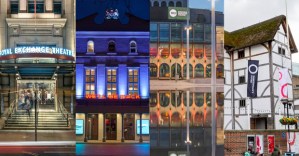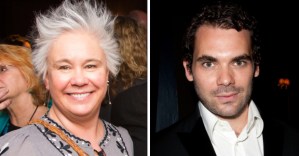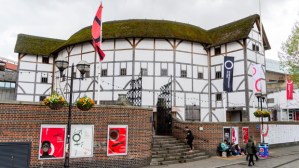Cuts to local arts funding will decimate our cultural community – now and for generations to come
The situation is becoming increasingly dire across the UK

Predicting the future is rarely a pleasant thing these days. Back in 2020 we published a story about the growing storm surrounding the financial precarity of local councils – whose funding is a cornerstone for so many venues and organisations.
Three and a half years on, the realities of this are starting to bite – with councils having big holes in their budgets, difficult decisions are being made. Similar patterns are emerging – with money tight, savings are being looked for. In Bristol, the famous Old Vic theatre, a producer of internationally famed work, is losing local funding. Suffolk county council announced a 100 per cent cut to arts funding, with similar warning signs from Nottingham, Birmingham, Windsor and Maidenhead.
Local funding isn’t some small sum either – authorities are spending around £1.6bn a year on arts, culture and libraries – the same value as the government’s heavily PR’d cultural recovery fund. If organisations (already saddled with soaring energy bills or repayments for their Covid support loans) are having to then make their own cuts in order to stay financially sustainable, often it’s the subsidised ticketing, community events and other outreach initiatives that take the brunt of the hit.
This isn’t exclusively about direct cuts to the arts – the loss of free parking, subsidised transport or other schemes at a time of increased cost of living will all add extra barriers to potential audiences and aspiring creatives, unable to create a consistent love for the arts world.
As much as local councils are having to make their own decisions, it’s impossible to disregard the backdrop: this current government has consistently disregarded the role of the arts within the wider economy. Despite being a huge growth sector, vernacular around “retraining” or cack-handed attempts to “level up”, have all resulted in major disruption to institutions and industries that have proven to pump money both into their local areas and national coffers. That’s before you consider the immense social, emotional and welfare-related perks that theatre-related and adjacent programmes provide. Arts initiatives deliver a sense of community and now, time and again, this is being stripped away.
As Bernard Donoghue, chair of the board at Bristol Old Vic said late last year: “Local funding delivers not only the well-documented benefits to social value, but also an economic return at a factor much greater than the original investment. Our sector is larger than the telecommunications sector and on a par with the food and beverages sector. It’s a smart, reliable investment. The culture sector is a key consideration when companies are thinking about relocating or planning investment into new premises. It is one of the biggest contributors to civic pride.”
If organisations falter or projects fall, then decades of work, outreach and audience building will come to nothing. Even if future governments begin pumping money back into local authorities expressly for the arts, many groups will have to start from scratch, having lost the work of those who came before. The talent of generations to come is already in serious jeopardy.



















